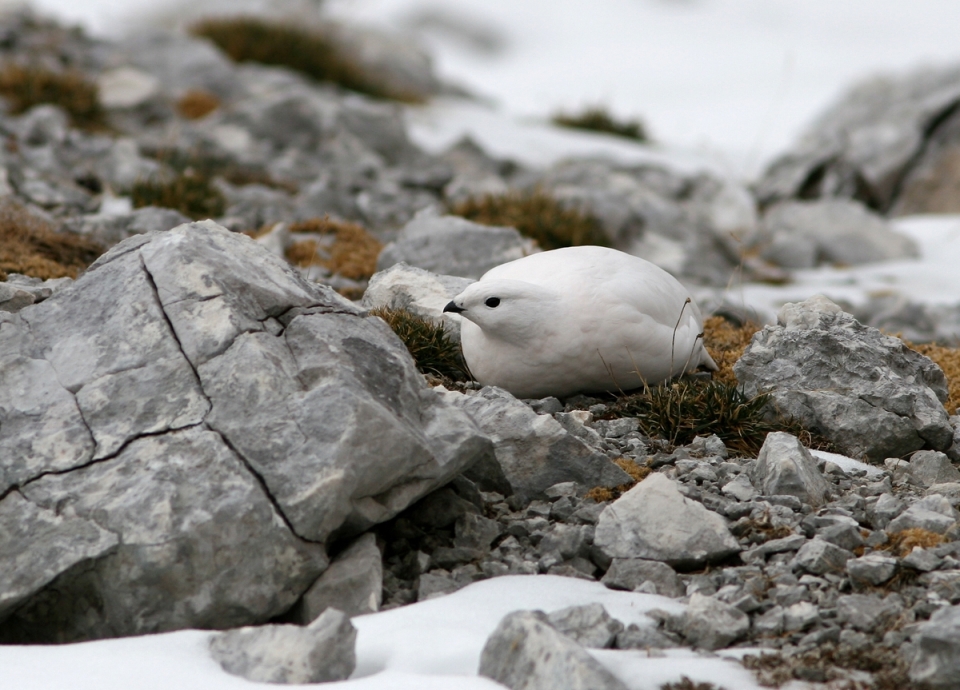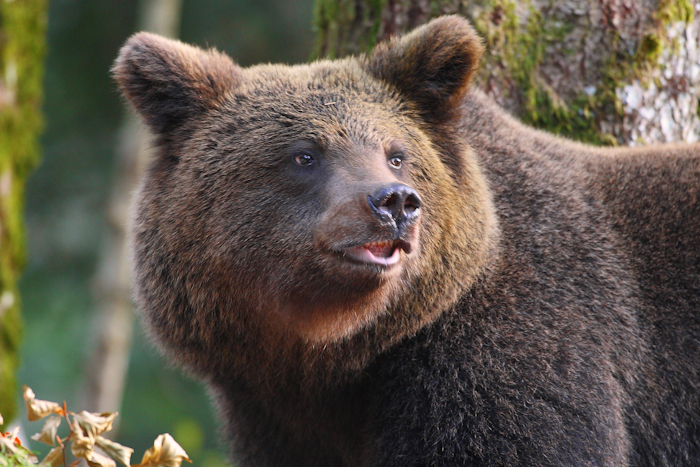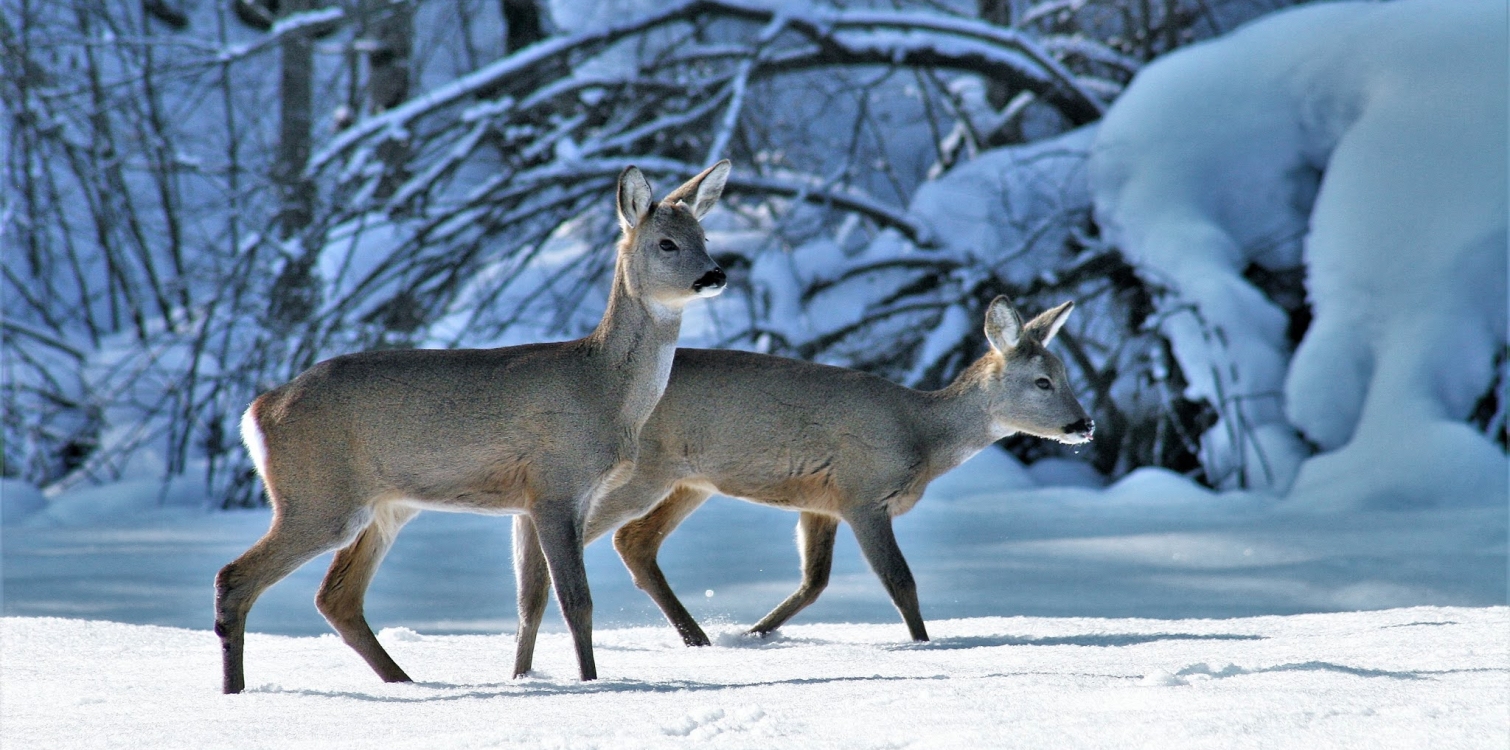If you observe closely, you can spot the mountain rabbit on the alpine meadows of the Triglav National Park during winter. Its brown fur in the summer turns snow-white in winter, and the fur becomes denser—especially around the ears.
Animals active in winter, such as birds and mammals, prepare for the cold by changing their feathers or fur, which becomes denser. Denser fur helps provide better thermal insulation by reducing the heat flow between their body and the surrounding environment, thereby preventing excessive heat loss.
Dormice, hedgehogs, bears, and marmots take advantage of the autumn abundance of food to eat well, and then retreat to their nests and burrows, where they hibernate through the winter.


Because it is cold in winter, animals would need to eat more to maintain their body temperature. Due to the winter scarcity of food, some animals FEED MORE ABUNDANTLY before winter and then hibernate through the season. This type of sleep is called "winter sleep" or hibernation.
During winter, the body temperature of the brown bear and other animals drops, and their heart rate and metabolism slow down. They reduce energy consumption and spend the winter in dens, burrows, and other shelters, where the ambient temperature remains relatively stable.
Smaller animals also keep warm by forming GROUPS. They huddle close together to prevent heat loss from their bodies. In nests, the young are surrounded by natural insulators such as down, feathers, and straw.
DO YOU KNOW?
- The Rock ptarmigans also turn white in winter. They dig tunnels under the snow where they spend the cold months. This interesting bird is often disturbed by people due to winter activities, especially in areas like Velo polje, Hribarice, and Mangart Saddle.
- During their winter dormancy, body temperature of bats drops to 10°C. Their heart rate decreases from 88 beats per minute to only 25 to 45, and they only breathe every 6 to 9 minutes.
- Bees guard their queen during the cold days, and the entire colony spends the winter together. To avoid getting too cold, they cluster together, generating enough heat to survive.
- Bears can lose up to half of their body weight during the winter.
Thank you.

